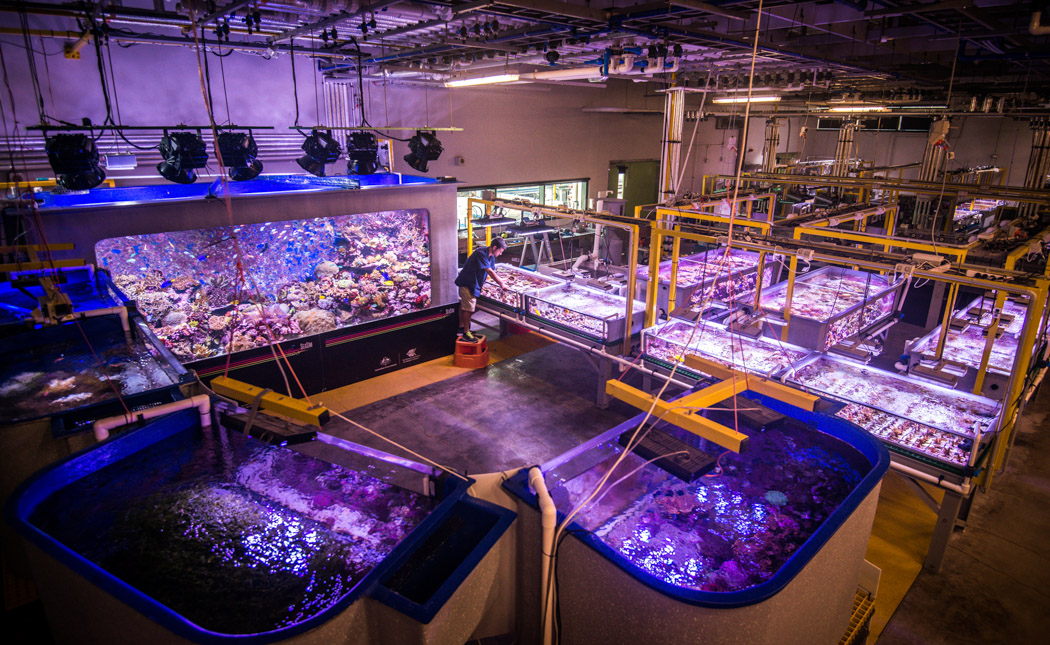The Australian Institute of Marine Science is set to play a crucial role in the next stage of the largest coordinated effort to help the Great Barrier Reef adapt and build resilience to climate change.
Founding Chair of the executive committee of the Reef Restoration and Adaptation Program and AIMS Chief Executive Officer Dr Paul Hardisty, said it was a massive endeavor, involving partners from many leading scientific organisations, to support the Reef, an Australian tourism icon and significant global ecosystem.
“This will be the biggest single effort to protect coral reefs from climate change and this decision to progress this research, places Australia at the forefront of global reef science,” Dr Hardisty said.
“We are trying to solve one of the most complex ecological problems on the planet and we have the best science and a window of opportunity, to find workable solutions.”
Dr Hardisty made the comments following the announcement by the Federal Minister for the Environment the Hon Sussan Ley and Special Envoy for the Great Barrier Reef, the Hon Warren Entsch, to launch the research and development phase of the Reef Restoration and Adaptation science Program which aims to help protect the Reef.
The consortium, with AIMS as the managing entity, includes CSIRO, The University of Queensland, Queensland University of Technology, James Cook University, Southern Cross University, and the Great Barrier Reef Foundation.
“Over the past 18 months, more than 150 experts from more than 20 organisations, had evaluated the existing research and technology in this area," Dr Hardisty said.
“We now have an improved understanding of the types and scales of possible interventions that are required, and we have measured social acceptability and regulatory requirements of at-scale intervention.
“The program aims to provide reef managers and decision-makers with a toolkit of safe, innovative and acceptable interventions that would work together to help protect the Reef from the impacts of climate change”.
AIMS Principal Research Scientist Dr Ken Anthony, leader of the Reef Restoration and Adaptation Program Decision Support Sub-Program said the science would take a three-pronged approach to help protect the Reef, assist coral species to evolve and adapt to the rapidly changing environment, and, where necessary, help to trigger and support the natural recovery of damaged and degraded reefs.
“We found these interventions would need to be combined with best-practice conventional reef management and reduced carbon emissions to maximise their effectiveness,” he said.
During the next stage of the program research teams will rigorously test and risk-assess potential interventions, including on-reef trials, and smaller scale interventions which could be available for deployment within five years.
Out of 160 possible scientific methods presented, 43 intervention methods were identified as warranting further research and development.
Dr Anthony said the next stage of a concerted research and development effort was now required to ensure any interventions were technically feasible, effective, safe, and affordable.
The project would work in tandem with more well-established efforts to reduce impacts on the reef, such as improving water quality, and controlling crown-of-thorns starfish.
AIMS has fit-for-purpose, world-class facilities, technology such as the National Sea Simulator research aquarium, leading expertise in coral restoration and adaptation science, modelling and engineering, and 37-years of Reef health data.
The Reef Restoration and Adaptation Program (RRAP) research and development phase will be funded by the partnership between the Australian Government’s Reef Trust and the Great Barrier Reef Foundation.
Read the Federal Government ministerial release here
AIMS Contact
Corporate Communication and Public Affairs manager – Mr John Liston
Mobile: 0407 102 684 or Email: j.liston@aims.gov.au


